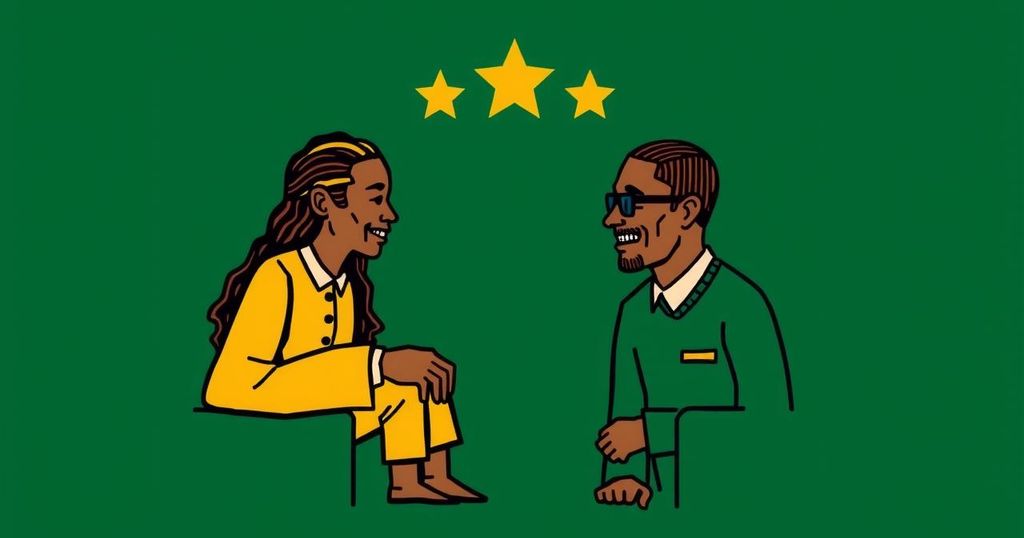The Democratic Republic of Congo is considering a constitutional review, a proposal met with opposition fears that it may enable President Félix Tshisekedi to extend his rule. Tshisekedi asserts that the current constitution, established in 2006, does not reflect Congolese values and plans to form a commission for drafting a new one. Key opposition figures like Moïse Katumbi and Martin Fayulu firmly reject any constitutional changes, warning that such actions could destabilize the nation.
The Democratic Republic of Congo (DRC) is currently contemplating a reevaluation of its Constitution, a move that has raised concerns among opposition groups about the potential intentions of President Félix Tshisekedi to extend his rule. President Tshisekedi has advocated for a “worthy” constitution and announced his plans to establish a national commission next year, tasked with drafting a constitution that aligns with Congolese identity and values. Upon his recent visit to Kisangani, he asserted, “I will appoint a national commission next year, which will include people from all disciplines, but who will be Congolese, to reflect and give us a constitution that will be adapted to our realities.” He critiqued the existing constitution, established in 2006 after a referendum, as being inadequate, stating that it was drafted by foreigners and does not reflect the Congolese way of life. In contrast, opposition members, particularly from the party led by Moïse Katumbi, express strong resistance to any constitutional changes, claiming that the proposed reforms are aimed at allowing Tshisekedi to maintain power indefinitely. Katumbi has publicly vowed to oppose any modifications to the Constitution, asserting “This law will not be changed.” Moreover, Martin Fayulu, another prominent opposition figure, stated, “I will be there with the people. I’m going to stand in the way of Mr. Tshisekedi, just as I did with Kabila.” The Catholic Church has also voiced its apprehensions, suggesting that potential changes could lead to national instability during a precarious time for the nation. As the debates around these constitutional revisions unfold, it remains unclear how Tshisekedi’s party will unite around this pivotal issue. In summary, the proposed review of the constitution in the DRC has ignited significant controversy, with President Tshisekedi advocating for reform while the opposition remains vehemently opposed, fearing a move toward an extended presidency. The outcome of this constitutional debate may have profound implications for the political landscape and governance in the DRC.
The debate surrounding the DRC’s constitution traces back to its establishment in 2006, crafted to end a turbulent cycle of power struggles and enhance democratic processes within the nation. President Joseph Kabila’s government initially promoted this constitution, while opposition factions, including those led by Étienne Tshisekedi, cautioned against its implications. The constitution allows a maximum of two presidential terms, with Tshisekedi currently serving his second term. Previous attempts to reform the constitution, particularly during Kabila’s presidency, were met with robust opposition, heightening suspicions concerning the motives behind such amendments. Presently, with Tshisekedi’s call for constitutional review, the context has shifted significantly, raising questions about his intentions and the long-term implications for democratic governance in the DRC.
The ongoing discussions about amending the DRC’s constitution have become a focal point in the nation’s political discourse, underscoring the tension between the ruling party’s ambitions and the opposition’s determination to preserve the democratic framework established over a decade ago. The constitutional review may possess significant implications for the future of governance and democratic integrity in the DRC, as various factions navigate their positions amidst a backdrop of potential instability and concerns over presidential overreach.
Original Source: www.theeastafrican.co.ke






